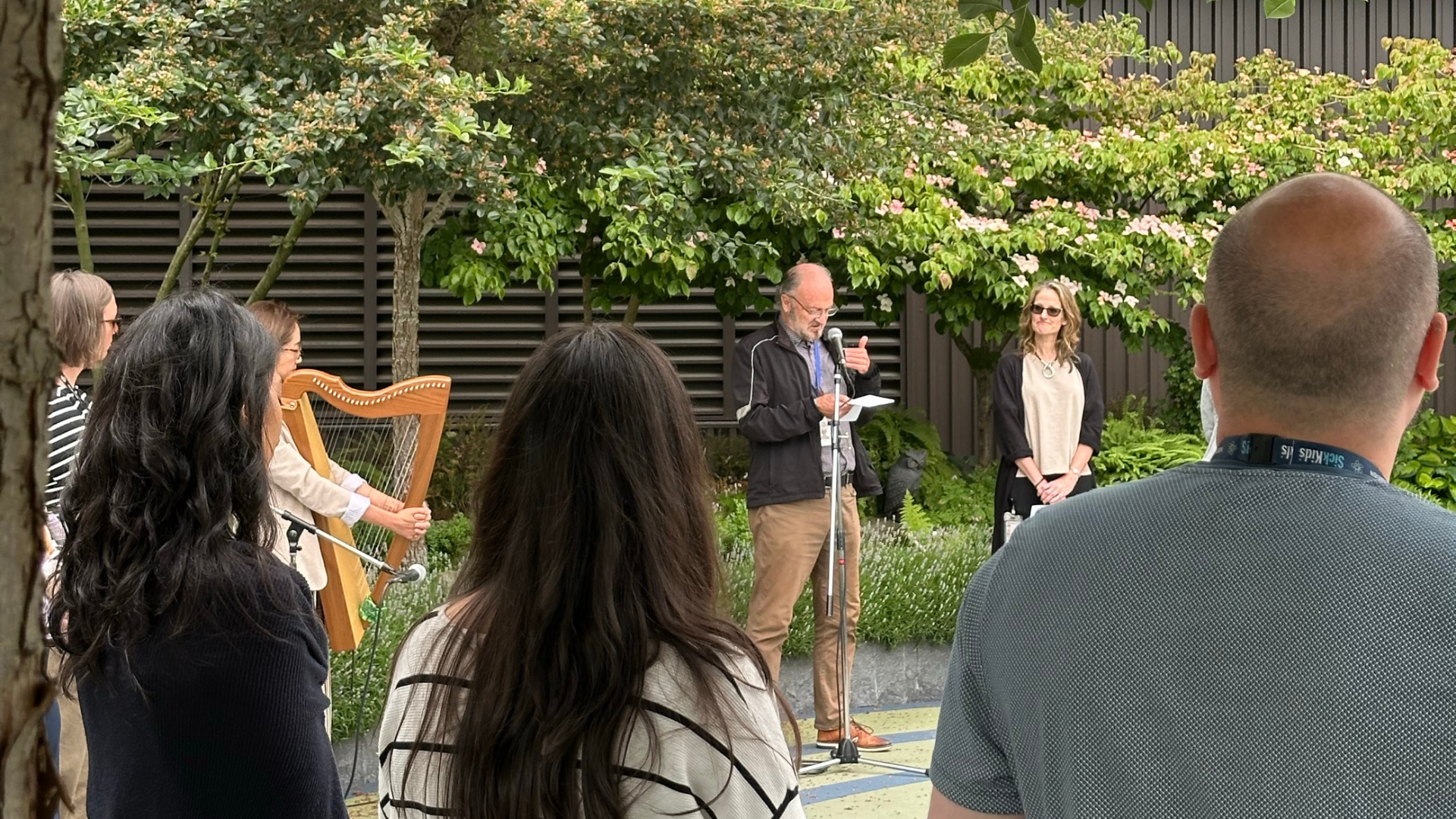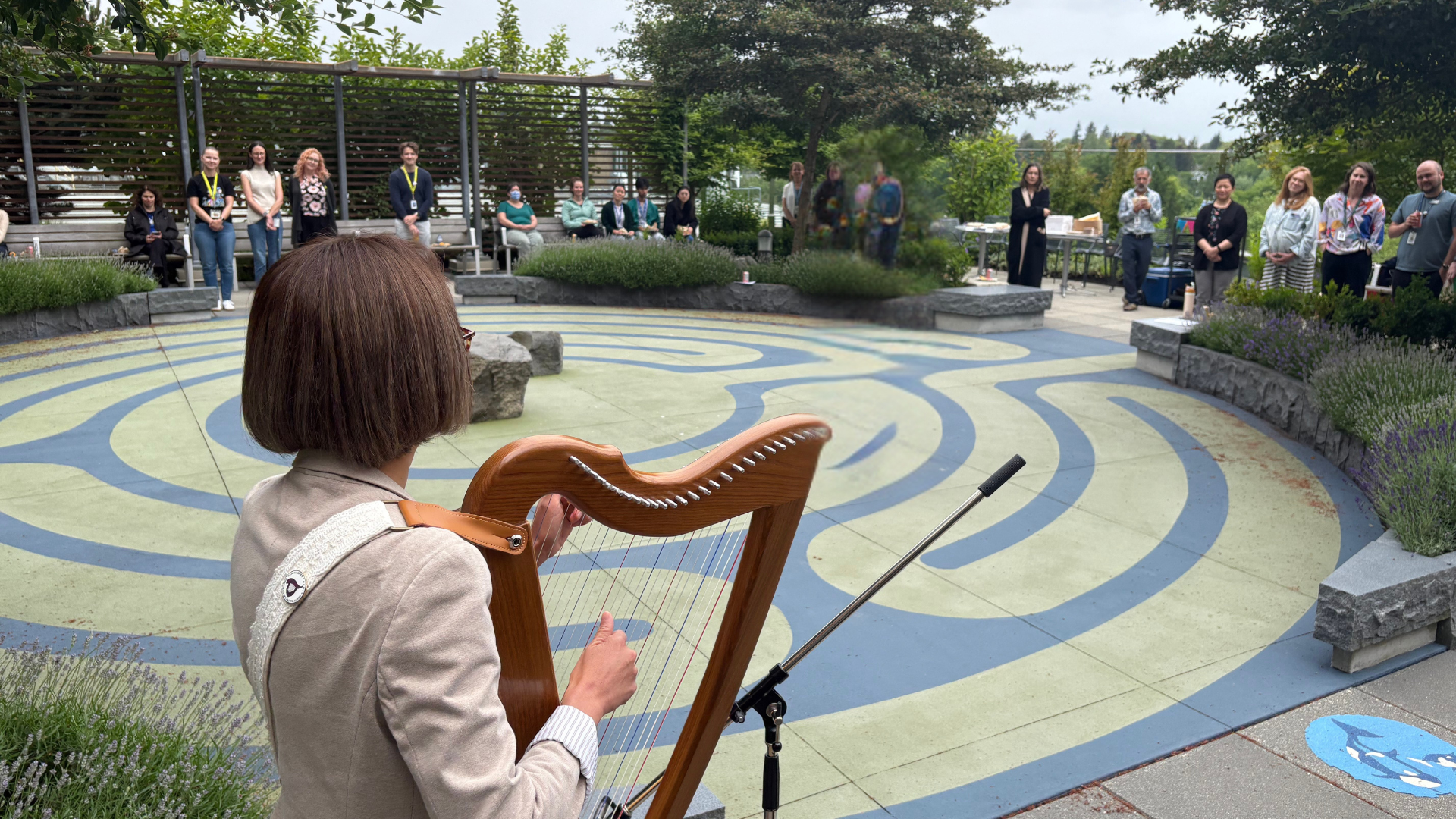I am very glad for our community to be together
and to celebrate this milestone, focused on
mindfulness, being a more mindful hospital and
discovering all that it means.
My thoughts go to our Indigenous teachings
gifted to us – “Be good medicine” so important in
our hospital setting.
Being good medicine connects us to others and to
ourselves and our best selves, which in turn
impacts positively everyone in the hospital
context, staff, patients, and families.

I would like to suggest three ways to be good
medicine, and the first way comes from another
Indigenous teaching from the Assiniboine nation
in the London Ontario region, and from the Seven
Grandfather Teachings. This teaching is on
respect and the symbol of respect is the powerful
symbol of the buffalo who gives all to sustain
human life. Respect means not to waste any of
the animal and to be mindful of the balance of all
living things. Share and give away what you do
not need. Respect the needs of others and to
honor all creation is to have respect and cultivate
compassionate relationships. Respect is an
attitude, words and actions.
All the various offerings of BC Children’s Centre
for Mindfulness keep us focused on respecting
one another, respecting others especially those in
greatest need.

A second way to be Good Medicine is creating
peaceful spaces in the moment. Last week I was
outside the meditation sacred space at Vancouver
General Hospital and noticed on the door lintel
and door frame black plaques with white writing
on it. The word peace with inscribed on 20 plus
plaques but all in different languages Peace,
Shalom, Salam, Tranquillita` --- and many other
words all meaning PEACE. Peace comes in many
ways words and ways.
Thich Nhat Hanh writes “peace is every breath
and mindfulness in the present moment
generates peace and energy, as we sense the
wonders of life inside us and all around us!”

One of my favorite movies is the “The Dead Poet
Society” starring Robin Williams – he plays an
English Literature teacher in an elite prep school
preparing boys to be captains of industry,
however, Williams, the teacher want them to
learn about life and reflect on the wonders of
being alive. In one scene he invites the students
to huddle around a glass cabinet that has pictures
of students going back many generations.
Students who have long ago passed away.
Williams the teacher tells them to look at the
pictures of these boys; and he entices them “to
listen to what the pictures are saying to them
now.” Students look a little confused---and he
says “listen” and he whispers into their ears
“carpe… carpe diem….” In Latin that means, seize
the day, seize the present moment.
Our mindfulness practice is a seizing of the
present moment - seize the present moment - be
present. We seize a peaceful moment with a
deep grateful breath. Finally, I close with a little
story by Thich Nhat Hanh, about a fellow who
goes to a flea market, he sees a bargain and buys
a bundle of things and brings them home, even
though he doesn’t need these many things. The
next day he sees other deals and buys more
things, and in short time his house is full of all
kinds of stuff, and he can barely move around,
and he is banging into something constantly.
Now he is annoyed and frustrated. He has no
space to live and breath
Thich Nhat Hanh explains, so too our minds
become cluttered with worries, fears and doubts,
but we need room to live, breath, to care for
others, space to dream, and space, sacred space
to play and space for loving kindness.
We can be Good Medicine in many ways and here
are my three ways for today. Good medicine
through respecting to one another, respecting the
environment, good medicine through being
present in the moment “seize a peaceful
moment” and finally be good medicine by making
space for what matters like compassion, caring
and loving kindness.
Good Medicine Matters!